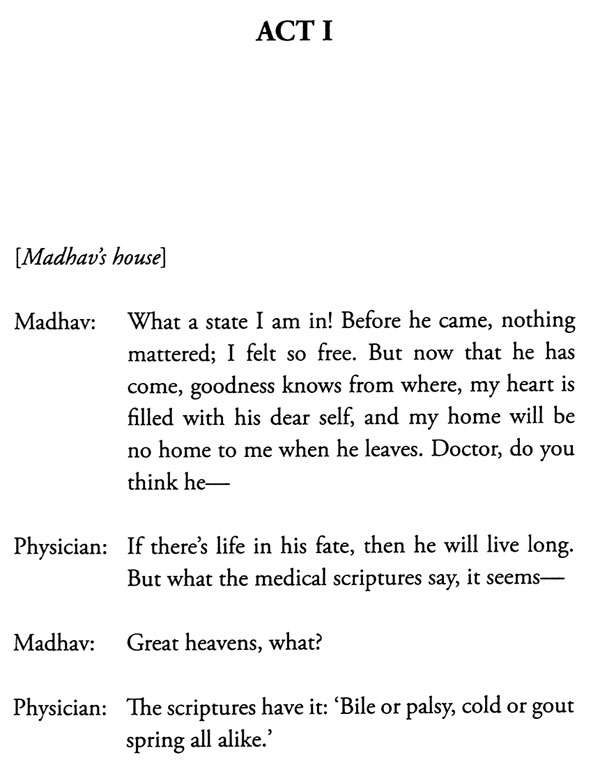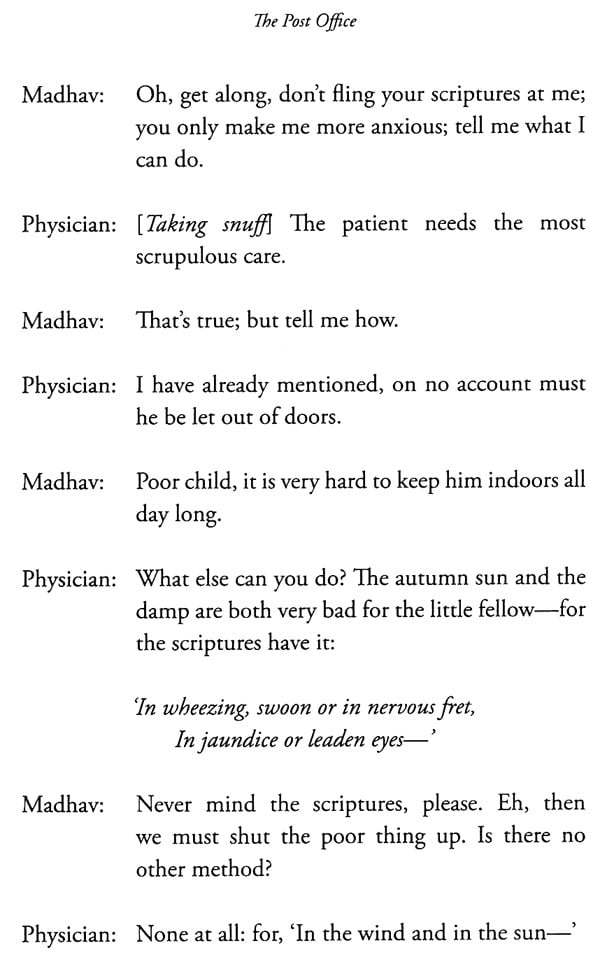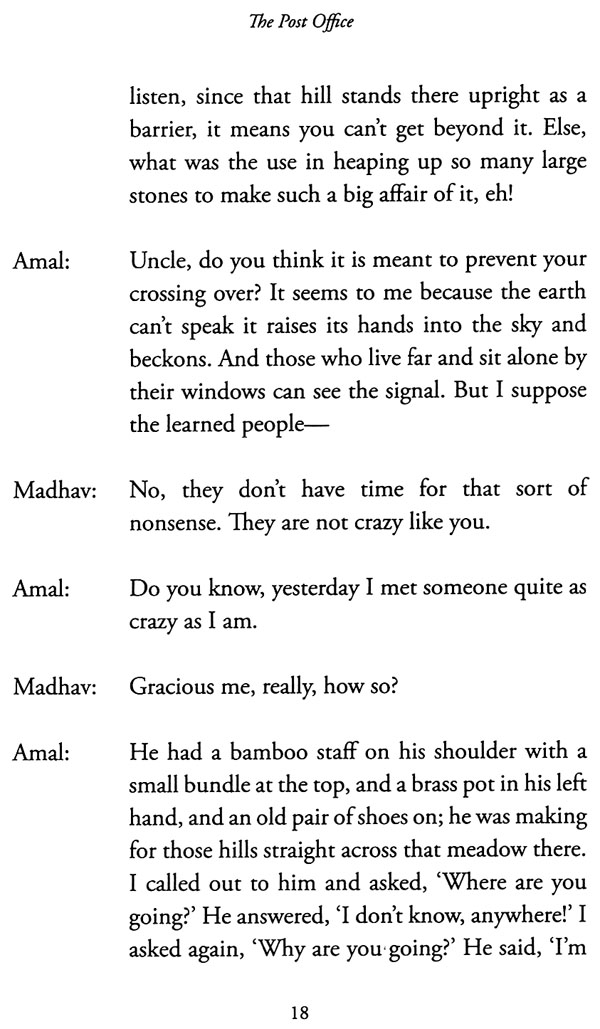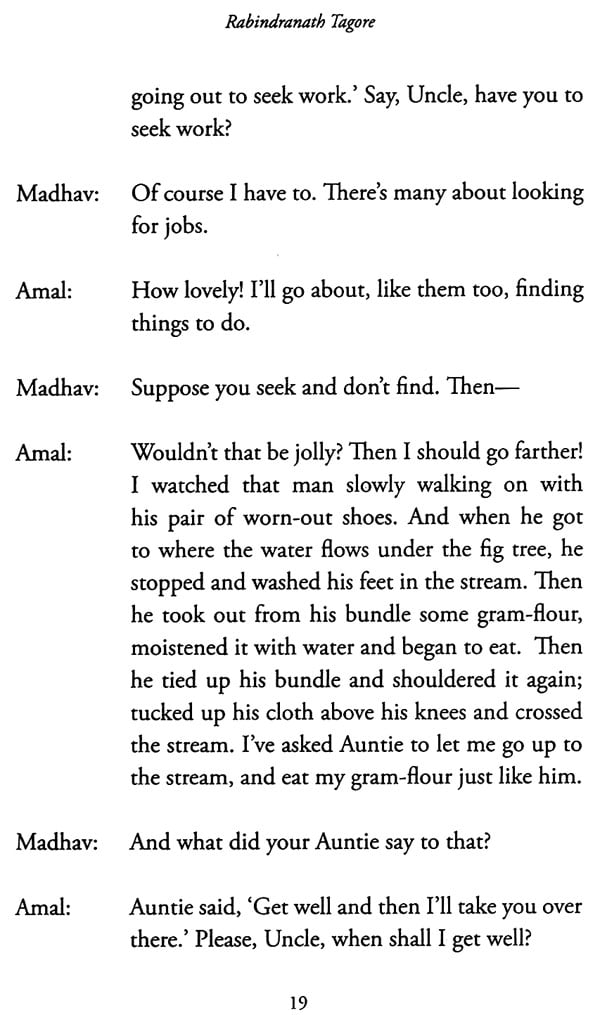
The Post Office
Book Specification
| Item Code: | NAU233 |
| Author: | Rabindranath Tagore |
| Publisher: | Niyogi Books |
| Language: | ENGLISH |
| Edition: | 2017 |
| ISBN: | 9789385285905 |
| Pages: | 59 |
| Cover: | PAPERBACK |
| Other Details | 7.00 X 5.00 inch |
| Weight | 60 gm |
Book Description
On 17 September, 1911, Rabindranath Tagore, in a letter to Manilal Gangopadhyay, wrote, 'I have written a short play. I am not sure if its fragrance will reach anyone else's nose, but I have liked it. That is the reward I got. The name of the play is Dakghar.'
During that time, the poet's mind was full of plans for visits abroad. He was physically tired, and his mind was eager to leave everything behind and undertake a voyage in search of new horizons. While explaining the concept of Dakghar to the Ashramiks on 20 December, 1915, Rabindranath himself said that there was a wave of emotions surging in his mind at that time. As if he was hearing a call from inside that he should set off in a circumambulation of the whole world, should try to understand the joys and sorrows of the people of far-off lands. It was an intense emotion, almost like a pain.
Almost ten years later, on 4 June, 1921, Rabindranath, in a letter to Andrews, laid bare his idea of the play, 'I remember at the time when I wrote it my own feeling which inspired me to write it. Amal represents the man who has received the call of the open road—he seeks freedom from the comfortable enclosure of habits sanctioned by the prudent and from walls of rigid opinion built for him by the respectable. But Madhab, the worldly-wise, considers this sign of restlessness to be the sign of a fatal malady; and his advisor, the physician, the custodian of conventional platitudes—with his quotations from prescribed text-books full of maxims—gravely nods his head and says that freedom is unsafe and every care should be taken to keep the sick man within walls. And so precaution is taken. But there is the post office in front of the window, and Amal waits for the King's letter to come to him direct from the King, bringing to him the message of emancipation. At last the closed gate is opened by the King's own physician, and that which is death to the world of hoarded wealth and certified creeds, brings him awakening in the world of spiritual freedom' (Letters to a Friend, 1929, pp. 17-20).
The story of Dakghar is told with all the wealth of colour and imagery of which Rabindranath was the master, and the vividness of the word picture added beauty to the simple but effective scenery. Amal's prattle in describing the forests and rivers of his imagination is couched in a language rooted in poetry. Such a piece, in its sincerity and poetic imagining, is removed from ordinary criticism. One likes it or one does not. When I read it for the first time, I found it impressive, but thought it too tender, too ethereal a thing for theatre. But I was proved wrong by the history of its success on the stage.
**Contents and Sample Pages**









